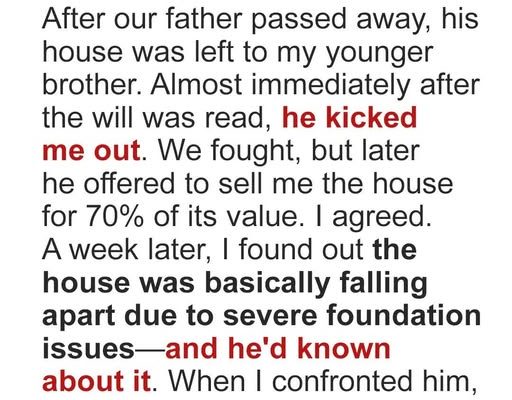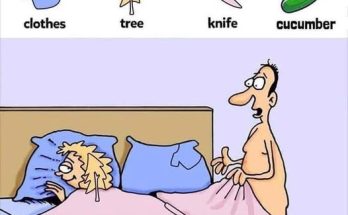Three years after my father’s funeral, I returned to our childhood home—now sagging with secrets. Dad had been my anchor after Mom died, and while I stayed behind to care for him, my brother Kyle vanished into his own life. So it felt like a slap when the will left the house to him and handed me a $3,000 check. Kyle didn’t hesitate—he packed my future and kicked me out.
I worked, I saved, and I survived. Then, out of nowhere, Kyle offered to sell me the house—discounted, “quick sale.” I ignored my gut and bought it. But two days after closing, the truth surfaced—cracks, flooding, a sinking foundation. An inspection confirmed it: Kyle had paid someone to cover up the damage. I took him to court. The judge reversed the sale and ordered repayment. Justice, maybe—but it didn’t feel like a win.
Then I found a hidden box behind Dad’s closet. Inside: heirloom jewelry, a ticking gold watch, stacks of cash, and a letter. “You stayed when no one else did,” Dad wrote. “This is for you. Build something that lasts.” It broke me. Not in grief—but in gratitude. In quiet triumph. I had lost the house, yes—but I found my father’s trust, and a way forward.
When I left, Kyle stood in front of the crumbling house, yelling that no insurance would touch it now. I just smiled. He had played the short game. I had played the long one. And I didn’t need to explain the difference—because karma, as always, doesn’t ask for applause.



